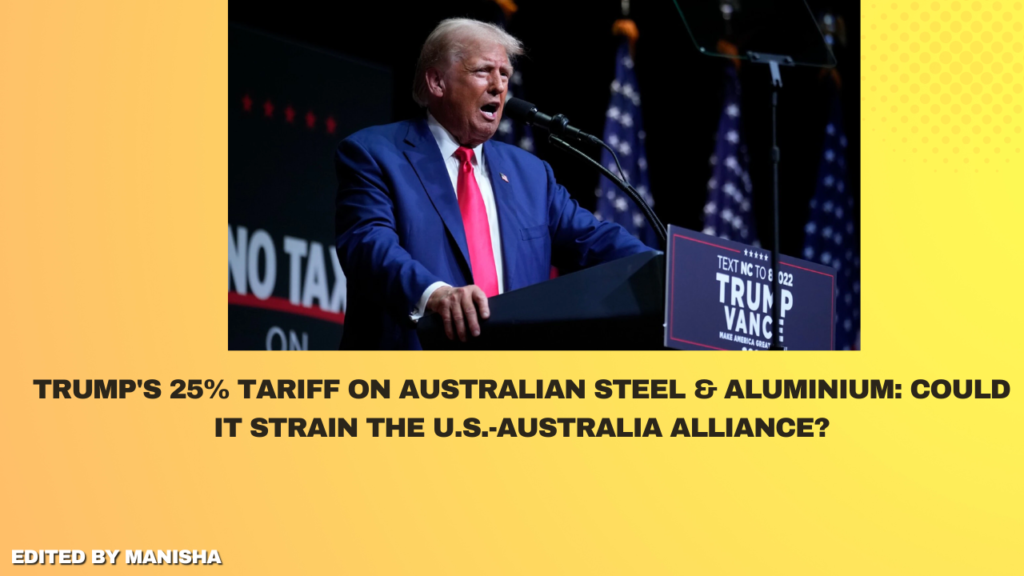
Donald Trump has imposed a 25% tariff on steel and aluminium imports, with no exemptions for Australia. While the U.S. president previously mentioned considering an exemption after talks with Prime Minister Anthony Albanese, no such carve-out has been granted yet. The decision has raised concerns in Australia, particularly for industries relying on these metals.
For many, the term “tariff” carries a different connotation. While the Australian government and industry groups view it negatively, Trump believes it is essential for protecting American industry. On a Tuesday morning, Trump signed an executive order imposing the tariff, making clear that there would be no exceptions.
The Minerals Council of Australia has warned that the tariffs could have severe effects on Australian businesses. The industry body is working with the Department of Trade and Foreign Affairs to understand the full implications. Innes Willox, Chief Executive of the Australian Industry Group, criticized the move as a “slap in the face,” noting that it came unexpectedly despite efforts to secure an exemption. Willox emphasized the significant costs Australian industries would face if the tariffs remain in place.
Australia had previously been granted exemptions when Trump imposed similar tariffs during Malcolm Turnbull’s leadership. However, there are doubts about whether the current administration will extend the same courtesy. Turnbull expressed concerns to ABC, suggesting that Trump’s determination to impose tariffs on all countries might make an exemption unlikely. Nevertheless, Prime Minister Albanese continues to push for a resolution, focusing on Australia’s national interests.
One factor in Australia’s favor is its trade surplus with the U.S. Australia exports more to the U.S. than it imports, and Trump acknowledged this in his remarks. He referred to the trade surplus as an important consideration, given the value of Australian aircraft purchases from the U.S.
In the meantime, industry leaders warn that the tariffs could have broader economic consequences. The steel and aluminium tariffs might affect not only industrial production but also defense, technology, and advanced manufacturing supply chains. Another critical concern is the potential impact on Australia’s iron ore exports to China, a key source of revenue for the Australian government. Trump has already implemented a separate 10% tariff on Chinese imports this month.
However, Trump has backed down from tariff threats in the past, such as when he suspended tariffs on Canada and Mexico after they agreed to address immigration issues. This has led some to hope that Australia might also secure an exemption. Previous negotiations with the Trump administration took several months, so the process could take time.
Opposition Leader Peter Dutton has expressed concerns that the tariffs could harm the U.S.-Australia alliance, given their long history of cooperation. He emphasized the importance of the relationship, especially in areas like trade and defense.
Prime Minister Albanese remains optimistic, pointing to the successful resolution of Chinese tariffs on Australian goods under the current Labor government. He believes that continued diplomatic efforts will ultimately serve Australia’s best interests.
In the end, the situation remains a delicate diplomatic balancing act, with few opportunities for missteps.